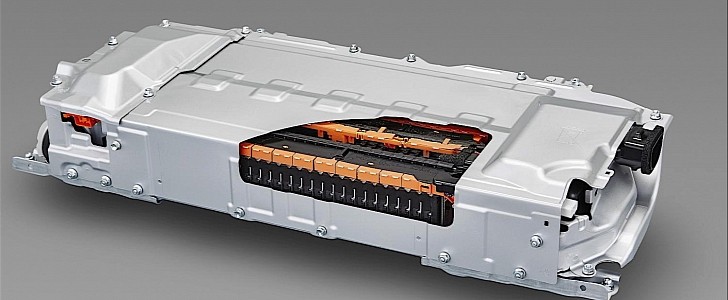Researchers are still in search of the optimal technology to employ in the batteries that will power the EVs of the future. Since the technology is required sooner rather than later, one can understand why so many scientists are working on it. In Korea, a team chose computational simulations to pinpoint the most promising options.
One important reason scientists are looking for new materials to make batteries for EVs is the scarcity of Lithium. There is also a requirement to improve energy density per cell, as well as the need to reduce the cost of batteries. With so many factors at play, Assistant Professor Haesun Park of Chung-Ang University, Korea, has made a study on the matter with his colleagues.
The team led by Haesun Park sought to discover the best option for a Calcium-based cathode material combination. The goal was to develop Ca-ion batteries instead of Lithium-ion ones, and the scientists claim that their research will help guide future experimental efforts.
The team adopted a systematic approach, which involved running quantum mechanical simulations based on density functional theory. Instead of repeated practical tests with endless combinations of materials, the team predicted battery-relevant properties of various layered materials that involved Calcium and transition metal oxides.
As the team of researchers noted, Lithium reserves represent as little as 0.002% of the Earth's crust, which makes it expensive and rare. Meanwhile, Calcium is 10,000 times more abundant than Lithium, which means it is commonplace in comparison.
Calcium has proven to be promising as a Lithium replacement, scientists say. That is because it can yield a similar battery performance, at least in theory. In practice, it still needs some fine-tuning.
Other teams of scientists are experimenting with various abundant alkaline metals to replace Lithium, so the race is on to find a suitable replacement. However, until that happens, the researchers in South Korea are looking for a suitable cathode for Calcium.
Their best guess, for now, was Cobalt, but that is another metal that is difficult to obtain, while some mines out there are not operating in a sustainable manner. The team has made a list of 28 candidate cathodes, as well as four types of layered structures and seven transition metal ions. Not bad, right?
In case your battery of knowledge is not fully charged, the cathode is the negative terminal. It is essential for the good operation of a battery to allow the reversible release of energy from the anode while also having the ability to store energy.
The team led by Haesun Park sought to discover the best option for a Calcium-based cathode material combination. The goal was to develop Ca-ion batteries instead of Lithium-ion ones, and the scientists claim that their research will help guide future experimental efforts.
The team adopted a systematic approach, which involved running quantum mechanical simulations based on density functional theory. Instead of repeated practical tests with endless combinations of materials, the team predicted battery-relevant properties of various layered materials that involved Calcium and transition metal oxides.
As the team of researchers noted, Lithium reserves represent as little as 0.002% of the Earth's crust, which makes it expensive and rare. Meanwhile, Calcium is 10,000 times more abundant than Lithium, which means it is commonplace in comparison.
Calcium has proven to be promising as a Lithium replacement, scientists say. That is because it can yield a similar battery performance, at least in theory. In practice, it still needs some fine-tuning.
Other teams of scientists are experimenting with various abundant alkaline metals to replace Lithium, so the race is on to find a suitable replacement. However, until that happens, the researchers in South Korea are looking for a suitable cathode for Calcium.
Their best guess, for now, was Cobalt, but that is another metal that is difficult to obtain, while some mines out there are not operating in a sustainable manner. The team has made a list of 28 candidate cathodes, as well as four types of layered structures and seven transition metal ions. Not bad, right?
In case your battery of knowledge is not fully charged, the cathode is the negative terminal. It is essential for the good operation of a battery to allow the reversible release of energy from the anode while also having the ability to store energy.








